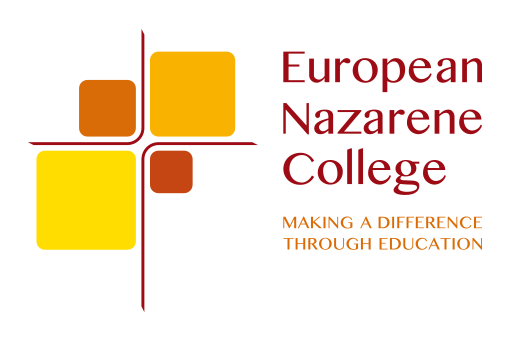Description
The programme consist of 120 ECTS and intends to prepare students for ministry in the local church. Depending on the precise criteria established by each district, this programme can fulfil the minimum requirements for ordained ministry in the Church of the Nazarene. In many cases, a district will require additional credits beyond the 120 of this programme.
The Diploma programme is accredited by the European Council for Theological Education (ECTE), and corresponds to the Minimum Qualification at Level 5, subcategory 554 in the ISCED framework (2011 International Standard Classification of Education) of the UNESCO. The level of this programme is equivalent to the first two years of a Vocational Bachelor degree.
Programme Outcomes
Students who graduate with the Christian Ministry Diploma will have:
* The abbreviations refer to the intended educational outcomes, as described on page 34 and following of the Academic Catalogue.
- a basic knowledge of Scripture (CN1)* and of the Christian faith, especially from a Wesleyan perspective (CN2)*, and a basic knowledge of the history of the church (CN3)*.
- a clear understanding of, and vision for, the mission of the Church (CN3), and the church’s responsibility to the world and its people (CT3)*.
- the basic knowledge necessary for effective ministry (CN4)* and for working with people (CN5)*
- the basic skills to interpret Scripture (CP1)* and communicate effectively (CT1)* within different cultural contexts (CT2)*.
- the basic skills to communicate clearly with people (CP2)*, provide leadership (CP3)*, and provide pastoral care to people (CP4)*.
- the skills to apply Christian understanding to their personal lives (CH1)*.
- grown in their pursuit of holy living in all its various dimensions of daily life (CT4)* and personhood (CH2)* through acquaintance with different spiritual disciplines (CH4)*.
- an increased awareness of who they are as persons (CH5)* and as servants involved in God’s mission in the world (CH3)*.
* The abbreviations refer to the intended educational outcomes, as described on page 34 and following of the Academic Catalogue.
Minimum Requirements
- Only courses with passing grades will count.
- The student must complete 180 ECTS, distributed as follows:
Cluster |
Course |
ECTS |
| A. Bible 25 ECTS |
Introduction to the Old Testament Introduction to the New Testament Foundations for Biblical Studies Pentateuch and/or Old Testament Prophets Synoptic Gospels and/or Pauline Literature |
5 5 5 5 5 |
| B. Theology, Tradition, and Identity 23 ECTS |
Introduction to Theology Holiness and Identity Christian Doctrines Nazarene History and Polity Church History Christian Ethics |
3 3 6 3 5 3 |
| C. God’s Mission, the Church, Vocation 23 ECTS |
God’s Mission and the Church Vocation and Personal Ministry Spiritual Formation Mentoring Evangelism and Church Intercultural Missions Faith Development in the Local Congregation Christian Worship |
3 2 3 2 3 4 3 3 |
| D. Ministerial Skills 21 ECTS |
Elective Courses: Preaching; Pastoral Care and Counselling; Foundations for Youth and Family Ministry; Church Leadership. Practicum Internship Ministry Integration Interpersonal Communication Electives: Additional Practicums(/Intership(s) |
10 1 3 3 2 2 |
| E. Academic Skills and General Studies 8 ECTS |
EuNC Orientation Introduction to Academic Skills Language and Written Expression Human Growth and Development |
0 2 3 3 |
| Electives | (see Course Descriptions) | 20 |
| Total | 120 |
